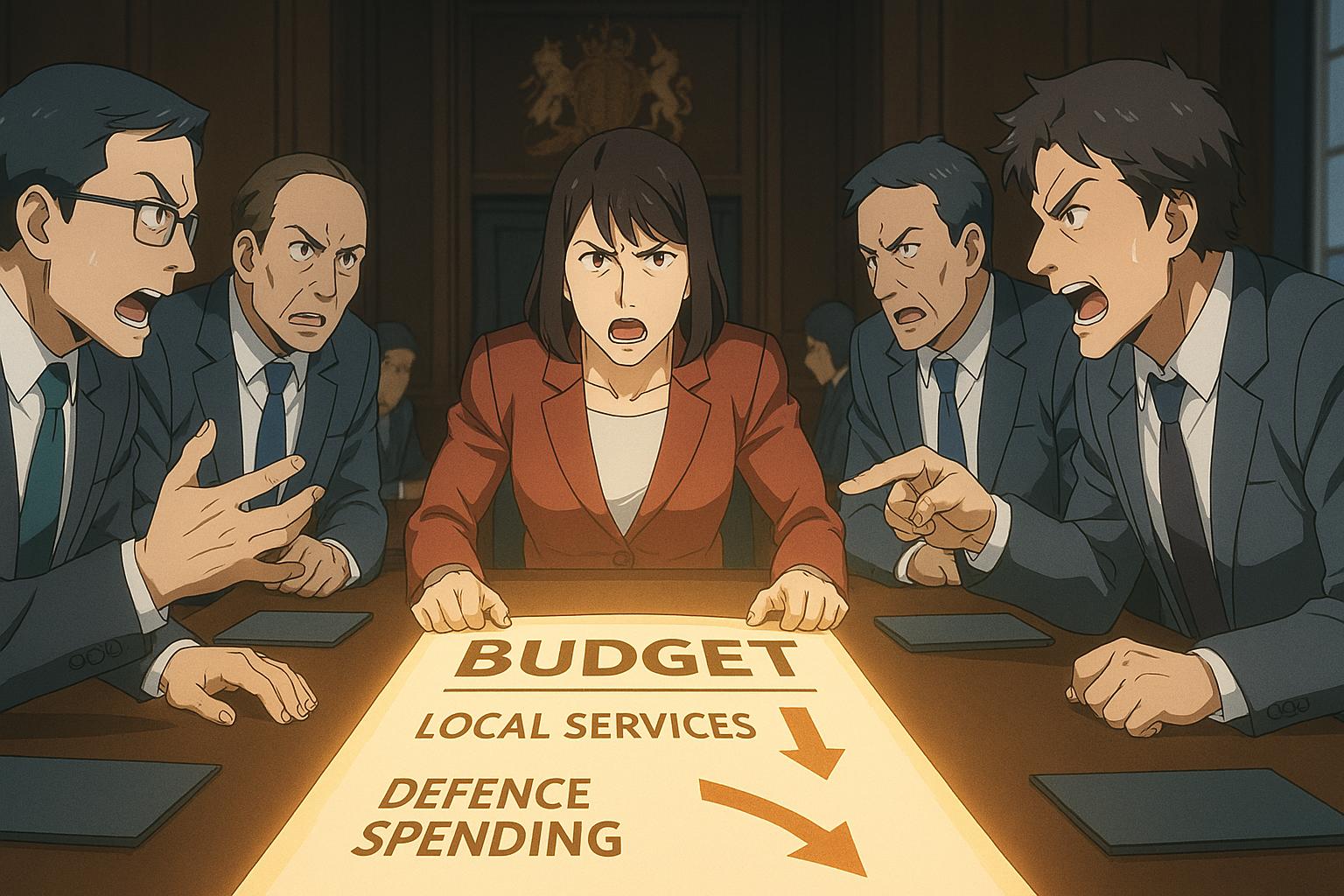As Westminster prepares for the impending Spending Review, the stakes have inexplicably soared. Scheduled for announcement on June 11, this review will dictate government spending until 2029, but there’s an unsettling sense of foreboding surrounding the decisions being made. Chancellor Rachel Reeves and her deputy, Darren Jones, are embroiled in crucial discussions with Cabinet ministers, yet the prevailing atmosphere is one of anxiety. Insiders fear that the government’s focus on health and defence will overshadow essential services such as education, policing, and social care—areas that should be receiving far more attention.
The government's insistence on "living within our means" may sound reasonable, but it’s an alarming mantra that foreshadows significant cuts to vital public services. While overall spending is nominally set to increase, considerable sums are again being funnelled towards health and defence at the expense of day-to-day operations. Sources lament, “there are services in real danger,” signalling a worrying neglect of the less glamorous, yet absolutely critical, components of public service as the Chancellor prioritises large capital investments over urgent needs.
Moreover, the current negotiations underscore a critical challenge: ministers are seemingly losing the battle to secure adequate funding for local services, which are teetering on the brink of financial collapse due to soaring demands and chronic underfunding. Deputy Prime Minister Angela Rayner's fight for increased investment in local councils reflects a desperate urgency, yet it also underscores the government’s apparent failure to grapple with the very real crises facing those councils. Advocates argue that neglecting local services now could lead to even more substantial costs in the future—a reckless approach that could only be exacerbated by the government’s hesitance to change course.
Despite earlier assurances from Treasury representatives, the budget negotiations feel chaotic. Insiders depict the situation as a “bunfight,” revealing discord among key players as they wrestle with funding priorities amidst a history of austerity. The Labour government's challenge is evident: they must somehow reconcile fiscal restraint with immediate public needs, made all the more complex by internal divisions over welfare cuts and the likelihood of tax increases.
Adding to the difficulties is the escalating demand for defence spending, pitting international obligations against domestic needs. Recent assessments from the Ministry of Defence suggest that a significant increase—rising to 3.6% of GDP—is essential to modernise the military and meet NATO commitments. Yet, there’s widespread concern about whether this is viable given the current financial climate. Labour leader Sir Keir Starmer’s promise to increase defence spending to at least 2.5% while conducting a review of military capabilities has drawn criticism. Skeptics argue that without substantial funding increases, the government’s ambitious military agenda is unachievable.
The situation becomes even more troubling as costs for incapacity and disability benefits spiral, surpassing even defence spending. This surge starkly illustrates the pressing need for welfare reforms but also exposes broader fiscal challenges that the government cannot ignore. With renewed calls for tightened eligibility criteria, the effects on vulnerable populations loom large. Policymakers face a daunting hurdle in balancing welfare considerations with the immediate fiscal reality created by Labour’s choices.
Ultimately, the Spending Review represents much more than a simple financial exercise; it’s a defining moment for the government as it gears up for the next election. Decisions made in the coming weeks will significantly impact public services and alter the political landscape. Striking a delicate balance between capital investment and the pressing daily operational needs is paramount if the government hopes to maintain public confidence. As one insider commented, the need for clear communication has never been greater; without it, the fallout could be disastrous.
As the government strives to position itself positively, the narrative surrounding the Spending Review holds as much weight as the financial choices being made. With conflicting interests and intensifying public demands, the outcome will likely resonate well beyond Westminster, shaping public discourse and potentially leading to even greater repercussions in the years to come.
Source: Noah Wire Services
